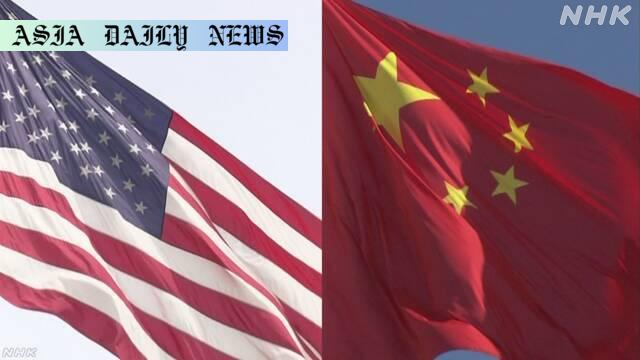Tariff Talks: US Secretary of State Marco Rubio announces negotiations with China to address pressing trade tensions.
Tariff talks between the US and China will soon commence, as confirmed by Marco Rubio.
US tariff measures have significantly impacted China’s economy, fostering negotiation interest.
China remains open to discussions while emphasizing a prepared stance if disputes persist.
US Treasury Secretary Scott Bessent is expected to lead negotiation efforts.

Introduction to the US-China Trade Talks
The trade relationship between the United States and China continues to shape global economic dynamics. Recent developments suggest that the US, spearheaded by Secretary of State Marco Rubio, is poised to initiate tariff negotiations with China. This follows months of escalating trade frictions between the world’s two largest economies. Secretary Rubio’s announcement has brought this contentious issue back into the spotlight, with global stakeholders keenly observing the outcomes of these discussions.
The Impact of US Tariff Measures on China
According to Rubio, the tariff measures implemented by the United States are severely affecting the Chinese economy. He asserts that this economic strain is compelling China to consider a “short-term accommodation.” While these tariffs were designed to penalize China for alleged trade malpractices, they have also triggered disruptions in the global supply chain. American businesses, particularly those relying on Chinese imports, have reported increased costs. Nevertheless, it appears that these measures have pushed China towards the negotiating table.
China’s Stance on the Negotiations
China, on its part, has issued a carefully worded statement through its commerce ministry, stressing that its fundamental positions remain unchanged. While expressing an openness to discussions, the statement emphasizes that China is prepared to persist in its economic defense if tensions continue. This dual-pronged strategy signals China’s cautious approach—willing to negotiate while underscoring its resilience.
The Role of US Treasury Secretary Scott Bessent
As negotiations gear up, US Treasury Secretary Scott Bessent is expected to play a pivotal role in the process. His involvement highlights the seriousness of the US administration in seeking a resolution. This move also signifies a potential shift in the tone of US-China trade relations, from retaliatory measures to diplomatic engagement. Analysts suggest that the talks could pave the way for a mutually beneficial agreement, though challenges remain substantial.
Potential Implications of the Talks
The outcomes of these negotiations could have far-reaching implications for both economies and beyond. For the United States, securing concessions from China on trade practices, intellectual property violations, and market access could bolster economic stability. On the other hand, China seeks to mitigate the economic strain induced by tariffs and stabilize its industrial output. The global economy stands to benefit if the US and China can achieve a balance, mitigating potential ripple effects of trade wars on third-party nations.
Conclusion: Prospects for a Diplomatic Resolution
While the scheduled tariff talks represent a positive step forward, they are only the beginning of what promises to be a complex negotiation process. Both the US and China are deeply entrenched in their economic policies, and finding common ground will require substantial compromise and diplomacy. Nonetheless, the very act of initiating these discussions signals a willingness from both sides to explore pathways to economic stability. For global observers, these developments are a reminder of how interconnected the world’s economic systems have become, and why collaboration remains critical in solving shared challenges.
Commentary
The Increasing Significance of US-China Trade Relations
Trade relations between the US and China have long been a barometer for global economic sentiment. The announcement of upcoming tariff talks signals a critical juncture for these two economic powerhouses. Considering the far-reaching implications of their trade policies, stakeholders across industries are eagerly awaiting updates. This development is highly significant, as it may herald a shift in the often-contentious dynamics of US-China relations. Moreover, it underlines the interconnectedness of global economies in an era where economic policies transcend borders.
The Challenges Ahead
While the news of impending negotiations is promising, it is essential not to overlook the challenges that lie ahead. Both nations have deeply entrenched policies that reflect their respective national interests. The US is likely to push for significant concessions, including stronger enforcement measures on intellectual property rights and broader market access for American businesses. Conversely, China will seek to alleviate economic pressure while maintaining its sovereignty over domestic trade policies. This delicate balancing act will undoubtedly test the diplomatic skills of both parties.
The Need for a Balanced Resolution
A successful outcome to these negotiations would necessitate compromise from both sides. The ideal resolution would address trade imbalances, foster fair competition, and reduce the economic strains imposed by tariffs. Moreover, a balanced resolution could set a positive precedent for resolving similar trade disputes around the world. As these talks unfold, one can only hope that both nations prioritize collaboration over confrontation, recognizing that progress on such crucial issues is beneficial not just for their economies, but for the world at large.


